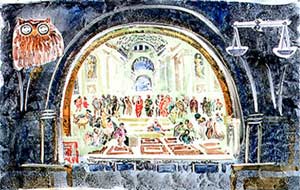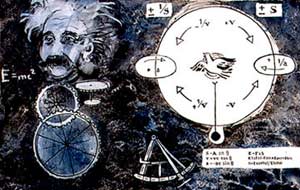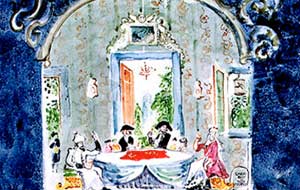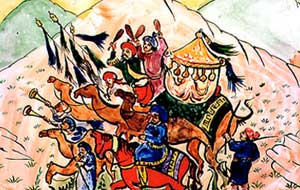






The process is a sequence of formal transformations; an equilibrial system, illustrated by the balance of a scale. The unconscious tips the scale toward resolution, transforming passivity to activity, antagonism to cooperation, and alienation to mutual respect.

The conflict resolution process is the unit of moral order. It mandates deliberate conflict resolution as the transformation of passivity to activity, of antagonism to cooperation, and of alienation to repect. The universal laws of morality, coincide with the Ten Commandments.

The process is a sequence of energetic transformations, like the pendulum oscillation. It abides by the laws of physics, but unlike the pendulum, the process upgrades order; it increases negative entropy.

Judaism illustrates the assertiveness syndrome. Jacob, the favored son of a powerful mother, is assertive. He extracts blessings from his father and wrestles with God. Becoming empowered as Israel, he is respectful of his discriminated brother Hesau, and a fair judge for his wives and sons. The Passover Seder's querying sons illustrate the four relational modalities; those of the wise, wicked, simple, and the quiet alternatives. The Judaic values reinforce the desirability of assertiveness and respect.

Islam illustrates the dominance syndrome. Mohammed espoused dominance, the relational choice attributed to Ishmael. Ishmael was the first born son of Abraham and Hagar. Hagar and Ishmael were banished to the desert. Feeling unjustly deprived, Ishmael and Mohammed feel jusitified in dominating their rivals. This relational choice is experienced by their opponents as dominant antagonistic.

Christianity illustrates the subordinacy syndrome. Jesus, the son of an unwed mother, espoused cooperation, non-violence, asexuality, and self-sacrifice. It is the relational choice of surrender and hope.